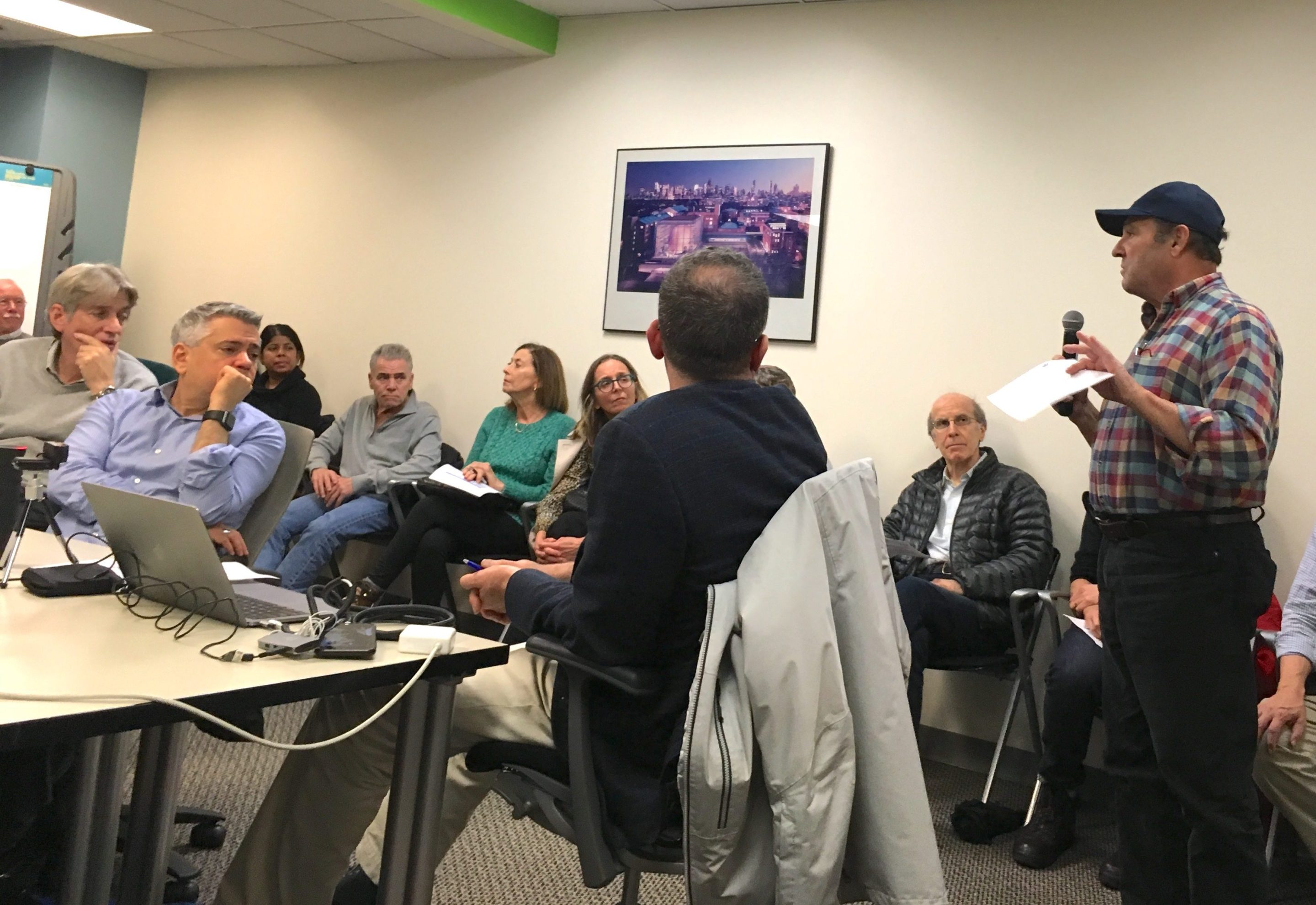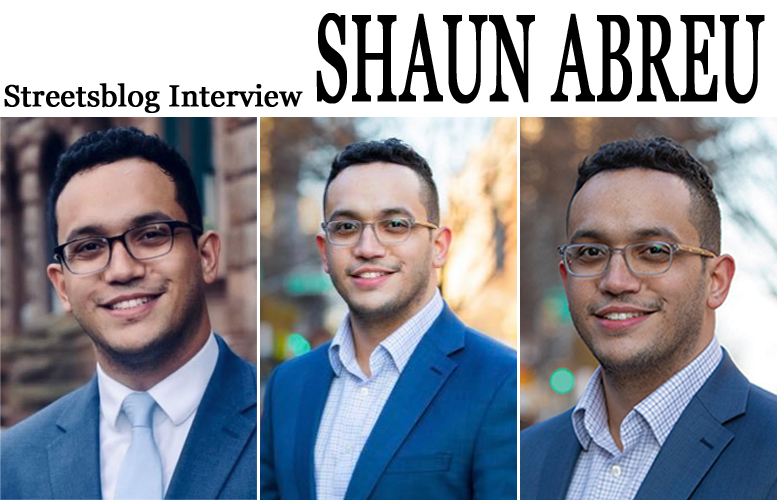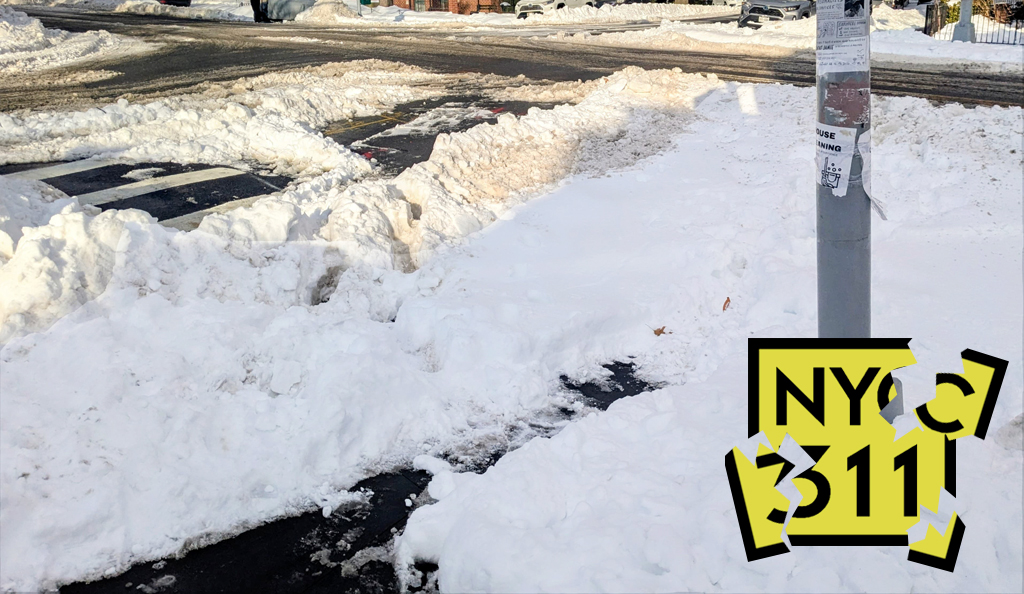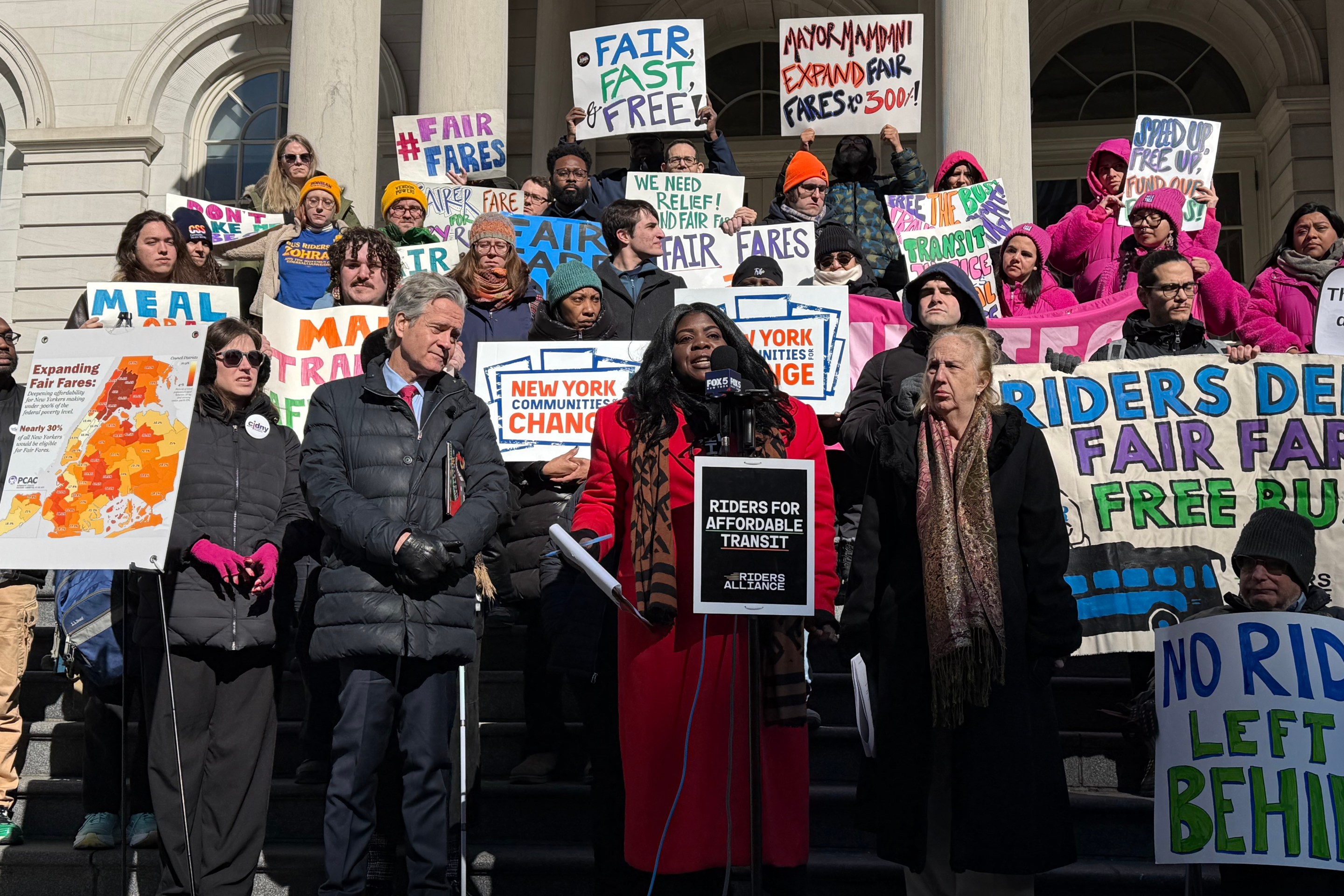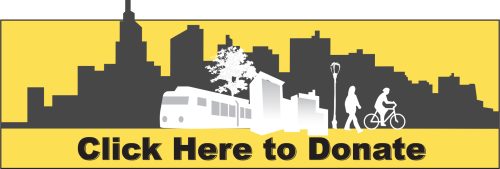
An Upper West Side community board committee last night approved a resolution asking the city to study the prospect of ending free parking — but the much-neutered proposal remained so contentious that it was watered down even further with a requirement for another round of community meetings.
Before Community Board 7's Transportation Committee unanimously passed the resolution calling for a city analysis on Tuesday night, the board's Chairman Mark Diller announced that the proposal would be subjected to “smaller-group conversations” outside regular board meetings in order “to get a greater consensus” before it would be sent to the full board for final approval.
"Consensus" was seemingly at hand after the original Transportation Committee resolution — which sought to eliminate free parking for the role it plays in encouraging car use, undermining transit and creating dangerous roads — was tamped down so that it only asked the city to “assess” and “advise” as to “whether there are policies that could provide greater benefit to the community” than free parking on most streets.
That resolution — introduced because of worries that the coming of congestion pricing in Manhattan’s central business district would lead to a glut of drivers seeking Upper West Side parking — has seen its ambitions successively clipped, a victim of the small minority of neighborhood car owners that has demanded that the board keep their “hands off” their entitlement of parking.
“Free parking is not on the agenda tonight,” Transportation Committee Chairman, Howard Yaruss said, as hecklers accused Yaruss — who owns a car — of anti-car “bias.”
“It may never be on the agenda,” Yaruss said. “The resolution we adopted in the spring is gone.”
But that wasn't enough for the neighborhood's car owners. Although only a quarter of neighborhood households own a vehicle, so ingrained is the idea that the public owes motorists free parking on public land that many audience members rose to argue that any attempt merely to study other uses for the Upper West Side’s curbside space was unfair.
“Every study has gone with the assumption that cars are the enemy,” said one car owner, Charles Gross. Instead, he said, the city should “consider the ways to increase free parking.”
Another audience member advised that the city “shrink the spaces around the fire hydrants” to 10 from 15 feet in order to carve out another parking space on each block (an irony, given that many bike lane opponents claim that protected lanes make it more difficult for firefighters to do their job).
But a majority argued for safe streets.
Lisa Orman, the director of Streetopia Upper West Side, said that “CB7 has a chance to lead and balance our curbside in a way that hasn’t happened before. … The status quo of the last 70 years [of car supremacy] is antiquated and needs to go.”
Sara Lind, a member of CB7’s executive committee, said she was disappointed that so many of her neighbors did not see the resolution’s utility.
“There are a number of reasons why this issue requires a sense of urgency, ranging from impact on the environment to the overcrowding our community is likely to face when congestion pricing hits,” Lind told Streetsblog. “Other cities have found innovative ways to manage curbside space and there's no reason we can't do the same in New York. The Department of Transportation needs to understand the community wants action on this issue; we are not satisfied with the status quo.”
That status quo is also dangerous. There were 13,107 crashes in CB7 from 2014 through 2018, according to city data, with almost 2,352 injuries and 19 fatalities — 14 of those pedestrians. That averages about seven crashes a day in an area of less than two square miles.
In fact, Deputy Inspector Timothy Malin, commander of the neighborhood's 20th Precinct, reported to the committee about a near-fatal crash on Saturday. In that incident, a Brinks truck driver rammed into an 85-year-old female pedestrian as she crossed Broadway at 61st Street. The woman is clinging to life, and the Collision Investigation Squad is investigating.
The amended text of the resolution passed last night is below. The full CB 7 board, which represents the Upper West Side from Columbus Circle to 110th Street, won’t consider the resolution until at its February meeting in order to accommodate the outside discussions, according to Diller.
Transportation Committee member Ken Coughlin, who supported the original resolution to end free parking, said that "more community input is to be welcomed," but added, "At the end of the day I don't see how you reconcile the clear need to study alternatives to the status quo with the desires of those whose main goal is to maintain the status quo."
Request for a Study on Curbside Usage
Our community currently suffers from traffic congestion, rampant double parking particularly due to growing e-commerce deliveries, significant "cruising" for parking and a substantial number of injuries to street users.
Congestion pricing is scheduled to be implemented in just over one year and community residents and business owners have expressed concern about the impact of this new policy.
How we use our curbside space has remained largely unchanged for many decades while our City has changed dramatically. This City owned land should be used for the greatest good for the greatest number of people, with a particular focus on the needs and concerns of the residents and businesses of our community.
THEREFORE, BE IT RESOLVED THAT Community Board 7/Manhattan requests that the City: (1) assess current policy regarding parking and curbside usage, (2) advise us as to whether there are policies that could provide greater benefit to the community, improve traffic flow and promote safer streets, including, but not limited to, paid residential parking permits, metering with surge capability and lessons learned from the practices of other major cities, and (3) conduct studies both before and after the implementation of congestion pricing to establish its effect on the community.
